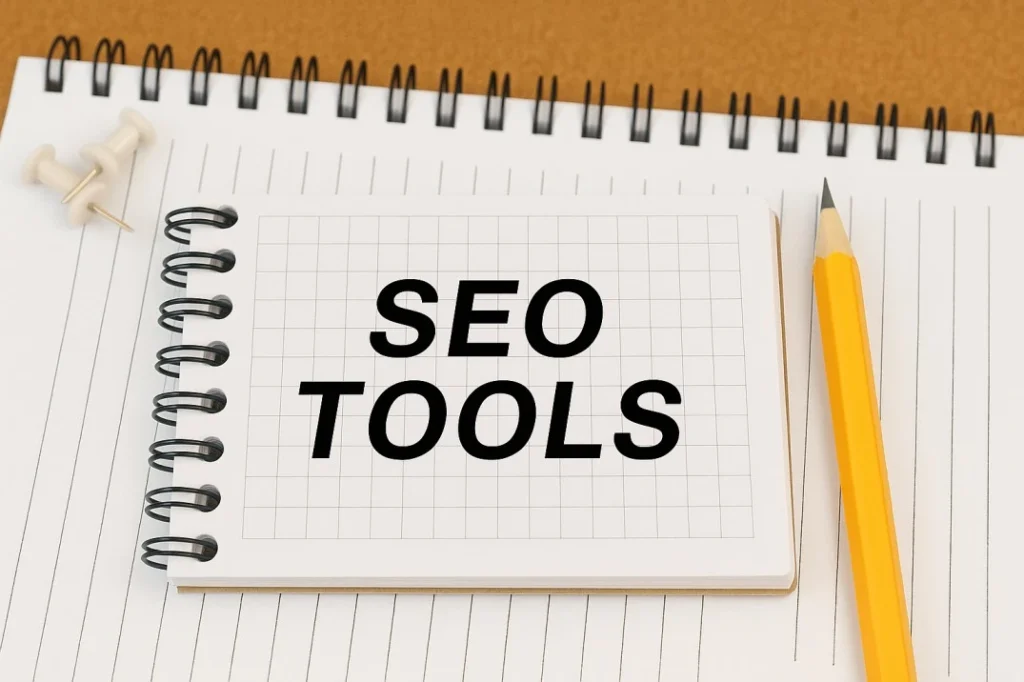Search Engine Optimization (SEO) is no longer optional—it’s essential. Whether you’re a seasoned marketer or a new blogger, having the right tools can make or break your SEO success. In this ultimate guide, we break down the Top 10 SEO Tools you must consider in 2025.
These tools cover everything: keyword research, site audits, backlinks, content optimization, and more. Let’s answer the most frequently asked questions beginners have and discover which SEO tools are truly worth your time and money.

1. What is SEO and Why is It Important?
SEO (Search Engine Optimization) is the process of optimizing your website to appear higher in search engine results. Higher rankings = more visibility = more traffic = more conversions. Simple!
Without SEO, even the best websites remain invisible. With the right strategy and the top 10 SEO tools, your website can outperform competitors and dominate search results.
2. What Are SEO Tools and How Do They Work?
SEO tools are digital platforms that help you improve your website’s SEO performance. These tools track your rankings, research keywords, analyze backlinks, audit technical issues, and even optimize content.
Think of SEO tools as your personal assistant that never sleeps. They scan your site, your competitors’ sites, and Google’s algorithms to find what you can improve.
For content creators, also explore this list of Free AI Video Generator Tools that can enhance your content marketing game.
3. Are There Any Free SEO Tools Available for Beginners?
Yes, plenty! Some of the best Top 10 SEO tools offer free versions:
- Google Search Console – Track performance and fix indexing issues.
- Ubersuggest – Free keyword research and site audit.
- AnswerThePublic – Great for long-tail keyword ideas.
- Google Keyword Planner – For planning your content around relevant search terms.
Pro Tip: Start with free tools and upgrade as you scale.
4. What’s the Difference Between On-Page, Off-Page, and Technical SEO Tools?
- On-Page SEO tools help with content, meta tags, headings, internal links (e.g., Yoast SEO, Rank Math).
- Off-Page SEO tools focus on backlinks, mentions, and domain authority (e.g., Ahrefs, SEMrush).
- Technical SEO tools look into speed, mobile-friendliness, crawl errors, and sitemaps (e.g., Screaming Frog, Google PageSpeed Insights).
Each type plays a unique role. Use them all together for a complete SEO strategy.
5. Which SEO Tools Are Best for Keyword Research?
Keyword research is the heart of SEO. The top tools for this include:
- SEMrush – Great for keyword difficulty, competition, and search trends.
- Ahrefs – Powerful database with keyword suggestions and SERP analysis.
- Ubersuggest – Beginner-friendly with keyword volume, SEO difficulty, and CPC data.
- KeywordTool.io – Ideal for YouTube, Bing, Amazon, and Google keywords.
These Top 10 SEO Tools help you find what your audience is searching for.
6. Which Tools Help with Site Audits and Technical SEO?
A site audit uncovers hidden SEO issues. Use these tools to keep your site healthy:
- Screaming Frog – Crawls websites and flags duplicate content, 404 errors, redirects.
- Sitebulb – Offers visual reports and audit prioritization.
- Ahrefs Site Audit – Easy-to-understand health score with technical recommendations.
- Google Search Console – Monitors crawl stats, mobile usability, and index issues.
Run audits monthly to stay ahead of SEO problems.
7. How Do I Choose the Right SEO Tool for My Needs?
Ask yourself:
- What’s my goal? (Traffic, rankings, backlinks, etc.)
- What’s my budget?
- Do I need beginner or expert features?
For example:
- Bloggers: Ubersuggest, Rank Math
- Agencies: SEMrush, Ahrefs, Screaming Frog
- Freelancers: Moz, SE Ranking
Choose based on your needs, not popularity.
8. Can I Use Multiple SEO Tools Together?
Absolutely. In fact, most pros do. Each tool specializes in something different:
- Use Google Analytics for traffic data.
- Use Ahrefs for backlinks.
- Use Surfer SEO or Frase for content optimization.
Combining tools gives you a holistic view of your SEO performance.
If you’re also exploring content video tools, check out these Free InVideo Alternatives to support your content strategy.
9. How Often Should I Use SEO Tools?
Daily for:
- Keyword tracking
- Competitor monitoring
Weekly for:
- Content optimization
- Technical scans
Monthly for:
- Full site audits
- Backlink analysis
SEO isn’t a one-time task. It’s an ongoing journey. The top 10 SEO tools help you stay consistent.
10. What Are the Best Chrome Extensions for SEO?
If you’re browsing a lot, Chrome extensions save time:
- SEOquake – On-page audits in a click.
- MozBar – View DA/PA while surfing.
- Keywords Everywhere – Shows keyword volume inside search engines.
- Detailed SEO Extension – Clean and beginner-friendly layout.
These free tools pack power right into your browser.
Final Thoughts: Which of the Top 10 SEO Tools Will You Use?
SEO success comes down to using the right tools, consistently. Whether you’re auditing your site, researching keywords, or tracking rankings – these Top 10 SEO Tools are your best allies.
Start simple. Learn each tool one by one. And remember: tools don’t replace strategy—they enhance it.
🚀 Tip:
Bookmark this guide and revisit it as your SEO skills grow. With the right tools and dedication, you’ll be unstoppable!



